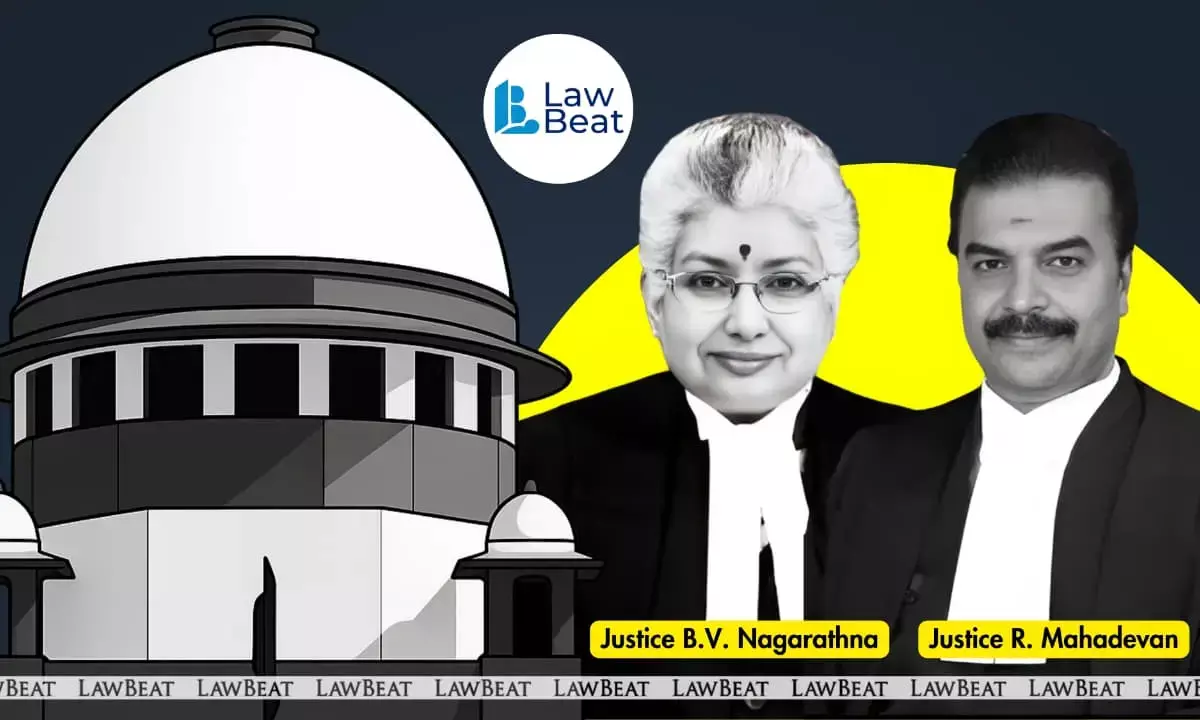Section 197 CrPC: SC Sets Aside HC Order Granting Protection to Police in Alleged Fake Encounter Case

The Supreme Court sets aside High Court's order on prior sanction for police excess, remands case back
The Supreme Court has observed that the requirement of prior government sanction to prosecute police officers accused of using excessive force is a “subtle concept” that cannot be presumed in all cases, stressing that courts must examine the issue at different stages of a criminal proceeding depending on the facts.
The bench of Justices B.V. Nagarathna and R. Mahadevan set aside a Madhya Pradesh High Court order that had quashed criminal proceedings against police officers accused of killing an absconding life convict in an alleged fake encounter, holding that the high court failed to engage with the factual matrix before granting protection to the police officers under Section 197 of the Code of Criminal Procedure (CrPC).
Court was hearing an appeal filed by Krishna Yadav, the mother of deceased Rajkumar alias Chhota Gudda, who was serving a life sentence for murder before his death in 2006. Rajkumar, released on parole in 2005, had not surrendered after expiry of the period and was declared absconding. According to police, when they tried to arrest him near his sister’s village in Shahdol, he and his associates fired at the police party, prompting retaliatory fire in which he was killed.
Yadav, however, alleged that the encounter was staged. She claimed that her son and his friend Bhupendra Sharma were shot by police while travelling to his sister’s house, and that the story of a gun battle was concocted to shield the officers. She filed a private complaint alleging murder, but the high court quashed it in 2022, holding that the officers were entitled to protection under Section 197 CrPC, which requires prior sanction for prosecuting public servants for acts done in the discharge of official duties.
The Supreme Court disagreed with the high court’s approach, observing that it had granted relief without properly analyzing the evidence or the sequence of events. “We find that in the absence of there being any discussion of the factual matrix in the instant case, the inferences made cannot be supported or accepted,” the bench said, remanding the matter back to the high court for reconsideration.
Crucially, the bench clarified that the issue of sanction for prosecution in alleged “police excess” cases cannot be treated uniformly. “The sanction for prosecution in the context of ‘police excess’ is a very subtle concept. In certain instances, no sanction for prosecution may be necessary at all. However, there are cases where even in the case of police excess, sanction for prosecution is necessary,” the court said. It added that this question may need to be examined “from stage to stage and at the relevant stage of a criminal trial".
The bench referred to court's previous decision in Om Prakash v. State of Jharkhand (2012) and G.C. Manjunath v. Seetharam (2025), which dealt with the scope of Section 197 protection for police officers accused of misconduct during official duty. While acknowledging that the law grants certain immunity to officers acting in discharge of duty, the Supreme Court underscored that such protection cannot be used as a blanket cover to preclude scrutiny where unlawful killings are alleged.
Assuming even that the high court’s inferences favouring the police were correct, the top court said, “those inferences ought to have been supported by a discussion of the facts of the case.” It faulted the high court for relying on reports of magisterial and human rights inquiries without analyzing them.
Setting aside the high court’s order, the Supreme Court restored the matter for fresh consideration. It directed the high court to decide the issue of sanction afresh, “in light of the judgments of this Court and in accordance with law,” and to dispose of the matter expeditiously.
The bench also extended an interim stay granted in favour of police officers in the ongoing trial before the Special Judge, Shahdol, until the high court reaches a decision.
“All contentions on both sides are left open,” the order concluded.
Case Title: Krishna Yadav Vs J B S Chandel & Another Etc
Bench: Justices B.V. Nagarathna and R. Mahadevan
